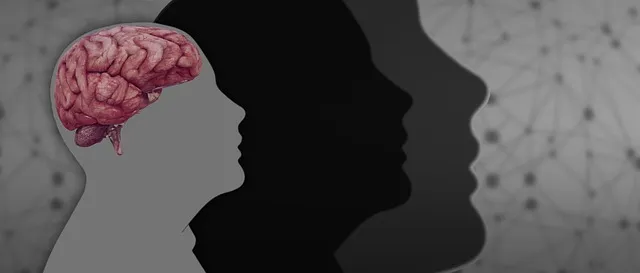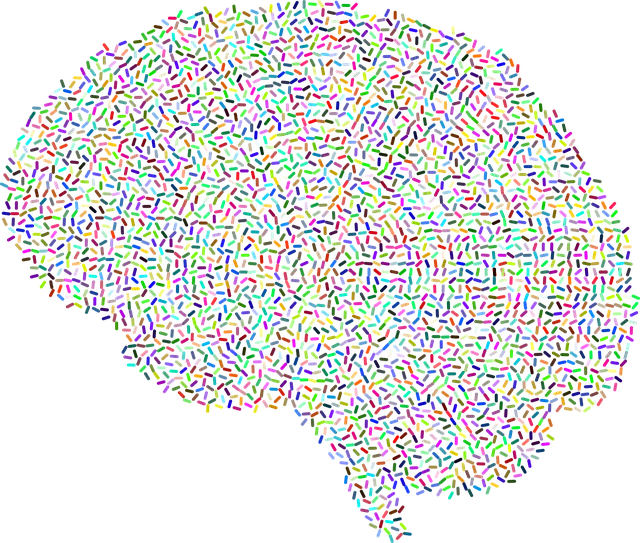Englewood Kaiser mental health programs tackle the complexity of diagnosing mental illnesses by combining evidence-based practices such as mindfulness meditation, stress management, and Mental Wellness Journaling Exercise Guidance with innovative techniques like conflict resolution training. These comprehensive approaches, integrating individual therapy and group support, enhance diagnostic accuracy, improve patient outcomes, and promote community Mental Health Awareness. Future improvements are expected through collaboration and technological advancements, ensuring tailored care plans for better mental wellness management.
Mental illness diagnosis accuracy is a critical aspect of patient care, and efforts to improve it have gained significant attention. This article delves into the complex challenges faced in diagnosing mental health conditions, offering a comprehensive exploration. We present the successful strategies employed by the Englewood Kaiser Mental Health Programs as a model for enhancing diagnostic practices. Additionally, innovative approaches are discussed, highlighting their impact on improving accuracy. Finally, we examine future directions and the broader implications of these efforts.
- Understanding the Challenges of Mental Illness Diagnosis
- Englewood Kaiser Mental Health Programs: A Comprehensive Approach
- Enhancing Diagnostic Accuracy Through Innovative Strategies
- The Impact and Future Directions of Improved Diagnosis
Understanding the Challenges of Mental Illness Diagnosis

Diagnosing mental illness accurately is a complex task due to the intricate nature of human psychology and diverse range of conditions. Many factors contribute to this challenge, such as comorbidity—where an individual may suffer from multiple disorders simultaneously—and the subjective experience of symptoms, which can vary greatly between individuals. The complexity is further exacerbated by the fact that mental health presentations often overlap, making differentiation difficult. This is where specialized programs like those offered by Englewood Kaiser Mental Health Services step in to provide comprehensive support.
Englewood Kaiser’s programs emphasize evidence-based practices and innovative techniques, such as conflict resolution training for professionals, to enhance diagnosis accuracy. They also promote resources like mental wellness journaling exercises, aiding individuals in tracking their experiences and symptoms. Additionally, risk assessment tools are crucial components of these programs, helping professionals identify potential risks and provide timely interventions. These efforts collectively strive to navigate the intricate landscape of mental health diagnosis, ensuring more precise and effective treatment paths.
Englewood Kaiser Mental Health Programs: A Comprehensive Approach

Englewood Kaiser Mental Health Programs take a comprehensive approach to diagnosis and treatment, aiming to significantly improve accuracy and patient outcomes. These programs integrate various evidence-based strategies, including Mental Wellness Journaling Exercise Guidance, to enhance self-awareness and coping abilities. By combining individual therapy sessions with group support networks, they address the multifaceted nature of mental health concerns.
The inclusion of Anxiety Relief techniques within these programs empowers individuals to manage their symptoms effectively. Furthermore, focusing on Coping Skills Development equips participants with tools to navigate stressful situations and promote long-term resilience. Through tailored interventions and a holistic perspective, Englewood Kaiser Mental Health Programs strive to not only diagnose accurately but also facilitate lasting improvements in mental wellness.
Enhancing Diagnostic Accuracy Through Innovative Strategies

Mental health professionals at Englewood Kaiser mental health programs are continually exploring innovative strategies to enhance diagnostic accuracy. One such approach involves integrating evidence-based practices like Mindfulness Meditation and Stress Management techniques, which not only improve patient well-being but also provide clearer insights during assessment. By fostering Positive Thinking and promoting a sense of calm, these programs aim to minimize the impact of anxiety and stress on symptom presentation, leading to more precise diagnoses.
Additionally, the use of advanced assessment tools and technology is revolutionizing diagnostic processes. Englewood Kaiser’s mental health experts leverage these resources to gather comprehensive data, consider multiple perspectives, and make informed decisions. This multi-faceted approach ensures that each patient receives a tailored care plan, ultimately improving treatment outcomes and fostering better mental health management.
The Impact and Future Directions of Improved Diagnosis

An accurate mental illness diagnosis is pivotal for effective treatment and recovery. Efforts to improve diagnostic accuracy can lead to more precise and timely interventions, ultimately enhancing patient outcomes. At Englewood Kaiser mental health programs, these goals are being advanced through multifaceted approaches. One such strategy involves incorporating innovative coping skills development techniques, fostering a deeper understanding of various mental health conditions among healthcare professionals, and promoting Mental Health Awareness throughout the community. Additionally, practices like Mindfulness Meditation are being integrated into treatment plans to not only improve diagnostic accuracy but also empower individuals with valuable tools for managing their mental well-being.
Looking ahead, the future of mental illness diagnosis lies in continued collaboration between researchers, clinicians, and community organizations. Leveraging technological advancements, such as AI-driven diagnostic tools and digital health platforms, holds promise for enhancing assessment precision and accessibility. Moreover, ongoing education and training initiatives aimed at keeping healthcare professionals abreast of the latest research and best practices will be instrumental in ensuring accurate diagnoses. By focusing on these directions, we can strive to create a more supportive and inclusive environment where everyone receives the proper care they need, ultimately reducing the burden of mental illness.
Mental illness diagnosis accuracy improvements, such as those exemplified by the Englewood Kaiser mental health programs, offer hope for better patient outcomes. By adopting comprehensive approaches and innovative strategies, we can enhance diagnostic precision, ensuring individuals receive appropriate care sooner. This not only improves quality of life but also reduces the societal burden of mental health issues. As we look to the future, continued research and collaboration will be vital to further refining diagnosis methods and expanding access to effective treatments.






